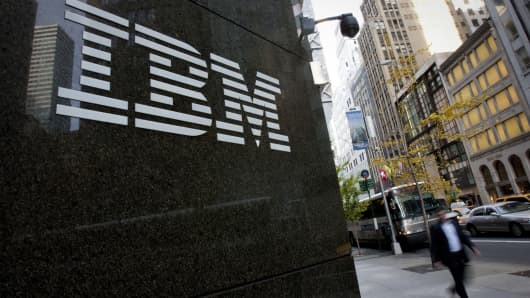There has been a growing debate about whether companies should reinvest for growth or return capital to shareholders, with the assertion that one precludes the other. This is a false choice, as demonstrated year in and year out by companies with sustainable models. Over the last decade, the S&P 1500 invested over $8 trillion in capital expenditures and acquisitions while also returning over $7 trillion of capital to shareholders.
At IBM, like the management of every business, we are stewards of our shareholders' capital. As such, we recognize the only sustainable way to serve our clients, which ultimately makes us a supportable investment, is to invest to earn profit — not just revenue. We fund our investments and our return of capital through the creation of profits. In the case of IBM, we are no longer raising additional equity capital. In fact, next year will be the 100th anniversary of our initial public offering.
Read MoreIBM CEO rejects split talks, cites 'clear strategy'
This means we continuously move to higher value spaces in enterprise technology. We invest heavily where we see profitable opportunities and divest when we don't see an opportunity to create value. In the last decade, we have invested more than $130 billion in key growth areas through research and development, capital expenditures and acquisitions, sustaining 21 straight years of U.S. patent leadership. It has also allowed us to triple annual profits over the last decade, from $6 billion to $18 billion, while revenues have only increased by 1 percent on a compound basis.
Our clients, and owners and partners, also have views of the competencies we have developed during our 100+ year history. They allow us to innovate the IBM systems that manage more than 70 percent of the worlds' business data, including the worlds' critical financial and transportation systems. Today, the shifts we see in enterprises toward analytics and cognitive systems like Watson, the emergence of cloud and the transformation of new secure mobile and social platforms are attracting the bulk of our investments. Our capabilities in these spaces represent the highest likelihood of earning a return. These investments will ensure that IBM remains the leader in enterprise IT.
Read MoreIBM no longer a tech company: Mark Cuban
We recognize that our success has attracted many competitors to enterprise technology. That's why we invest so heavily. We also know that our success brings opportunities to partner with leading companies that can complement our innovation, allowing us to transform industries.
Stewardship also requires that we do more than just invest, it requires that we return capital to our owners. We balance our investments and capital return to ensure we deliver the high value our clients expect. Successfully reinvesting in high value for the long-term has also allowed us to pay a dividend every year since 1916 and reduce our share count each year since 1995. Over the past 10 years, we have been able to return a substantial amount of capital, although not as much as we have reinvested over that time. Disregarding the need to return capital means you have ignored your role as a steward. And with voting rights for IBM shareholders, our investors maintain their control over the stewards.
Read MoreIBM disappoints, but something has to give
So we will continue to execute our role as stewards, investing heavily where we see long-term opportunities to drive profitable growth and industry leadership, and returning the shareholders' money at the same time. It is a false choice to think we do only one or the other. We will continue to proudly do both.
Commentary by Martin Schroeter, a senior vice president and CFO of IBM. Follow IBM on Twitter @IBM_News.


